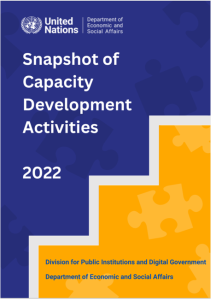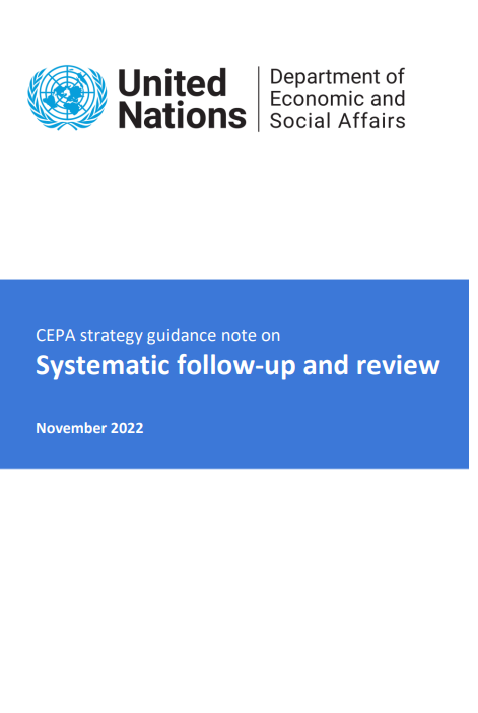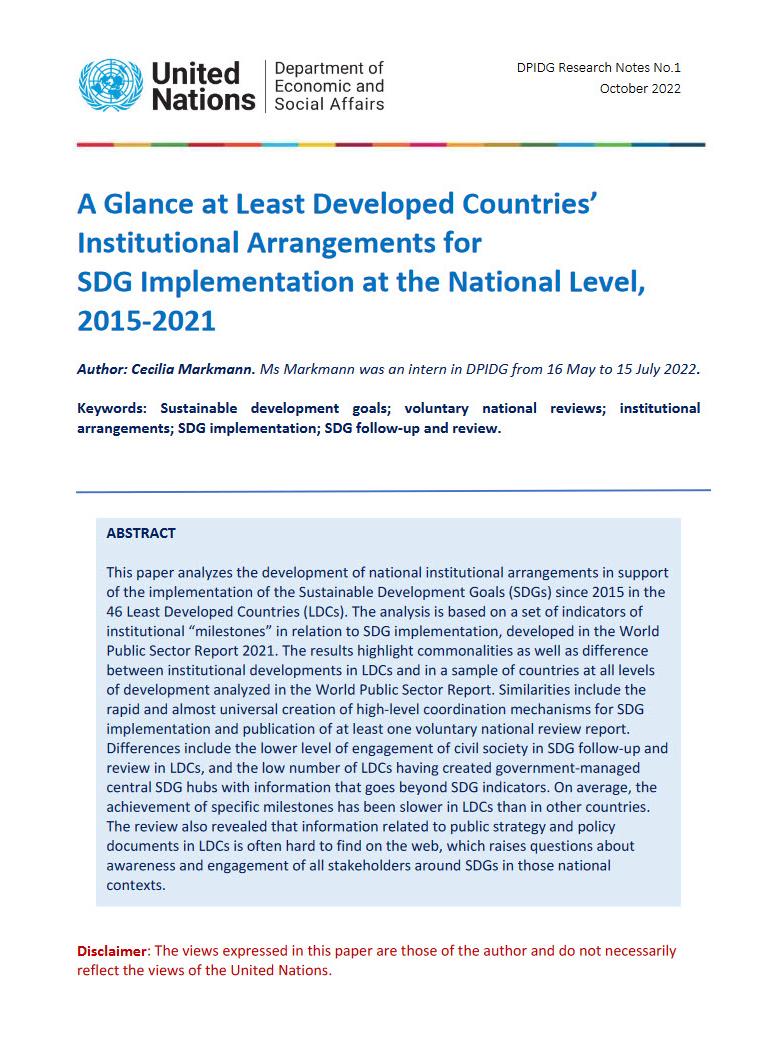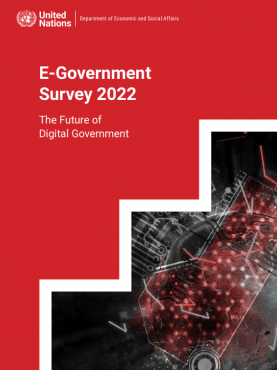| Handbooks | Local Governance
Social Value in Local Governments
Over the last few years, the world has experienced an unprecedented pandemic. At the crossroads of coexistence or co-destruction, nations learned that community-centred thinking and action was needed, breaking away from self-centred behaviour. This…
| Handbooks | Sound Policymaking | Supreme Audit Institutions
Handbook on strengthening budget credibility through external audits
DPIDG/UN DESA is collaborating with the International Budget Partnership (IBP) to support Supreme Audit Institutions in conducting analyses of the credibility of government budgets through external audits (SDG16.6.1).“Strengthening Budget…
| SDG 16 Conference Reports | Public Institutions
SDG 16 Conference Report 2023
The 2023 SDG 16 Conference addressed the role of SDG 16 in navigating the intersecting crises the world is facing. The Conference reviewed the progress and challenges related to SDG 16, focusing on conflict, and shrinking trust in public…
| Policy Briefs | Digital Government
UN DESA Policy Brief No. 149: Promoting Youth Participation in Decision-Making and Public Service Delivery through Harnessing Digital Technologies
Key messagesHarnessing digital technologies can greatly support public institutions in promoting effective youth engagement and participation in policy processes. Digital technologies can play an instrumental role in youth engagement and…
| Capacity Development Reports | Digital Government | Sound Policymaking | Local Governance | Open Government Data | Participation and Accountability | Principles of Effective Governance | Public Institutions | Public Service Innovation | Supreme Audit Institutions | Transformational Leadership and New Mindsets
Snapshot of Capacity Development Activities 2022
UN DESA’s Division for Public Institutions and Digital Government (DPIDG) provides capacity development support and policy advice to countries upon their request to strengthen governments’ capacities to translate the Sustainable Development Goals (…
| CEPA Strategy Guidance Notes | Principles of Effective Governance
CEPA strategy guidance note on systematic follow-up and review
UN DESA's work is supported by a growing series of strategy guidance notes on the many facets of effective governance for sustainable development which embody the knowledge and experience of hundreds of committed expert practitioners and academics…
| Research Notes | Public Institutions
A Glance at Least Developed Countries’ Institutional Arrangements for SDG Implementation at the National Level, 2015-2021
This paper analyzes the development of national institutional arrangements in support of the implementation of the Sustainable Development Goals (SDGs) since 2015 in the 46 Least Developed Countries (LDCs). The analysis is based on a set of…
| UN E-Government Surveys | Digital Government
UN E-Government Survey 2022
The United Nations E-Government Survey 2022 is the 12th edition of the United Nations’ assessment of the digital government landscape across all 193 Member States. The E-Government Survey is informed by over two decades of longitudinal research,…
| Handbooks | Digital Government | Public Service Innovation
Handbook on how to design and implement One-stop-Shops to promote better service delivery and implement the Sustainable Development Goals
This Handbook, prepared by UN DESA/DPIDG, provides local and national governments with a set of conceptual approaches, practical strategies, and tools to improve the delivery of public services through citizen centric One-stop-Shops (OSS). It…
| SDG 16 Conference Reports | Public Institutions
SDG 16 Conference 2022 Report
The report of the 2022 SDG 16 Conference on people-centred governance in a post-pandemic world is now available. The Conference, co-organized by UN DESA, the International Development Law Organization and the Government of Italy and held in April…
| Policy Briefs | Public Institutions
UN DESA Policy Brief No. 136: Promoting non-discrimination in public administration: some entry points
Promoting non-discrimination in public administration: some entry points
Key messages
Public administration can both serve as a vehicle for discrimination and provide channels to address it.
Research is needed, in particular from developing…
| Capacity Development Reports | Transformational Leadership and New Mindsets
Outcome Report of the Peer-to-Peer Learning International Workshop
The Peer-to-Peer Learning International Workshop on Public Service Training Assessment Framework for Strengthening Capacities of Public Servants to Support SDG Implementation was held under the responsibility of Juwang Zhu, Director of the Division…
 Welcome to the United Nations
Welcome to the United Nations





